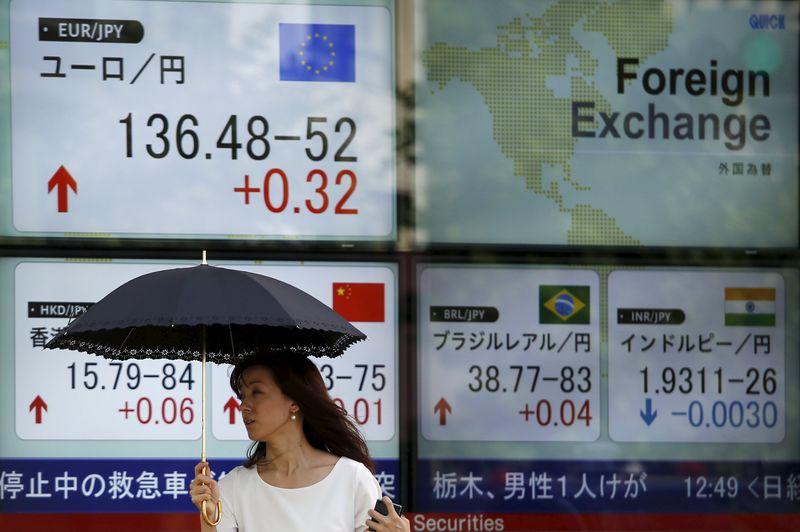* Canadian dollar hit by oil, bets of policy easing next
week
* Hits 13-year low, Aussie also down 1 percent
* Dollar index edges down, though on track for weekly gain
* Eyes on U.S. retail sales, Fed's Dudley
By Patrick Graham
LONDON, Jan 15 (Reuters) - The Australian, New Zealand and
Canadian dollars all sank on Friday on the back of another
tumble on Chinese stock markets and a fall in the price of oil.
China's yuan was also back under pressure in offshore
markets, down around a third of a cent as Shanghai stock markets
fell to their lowest since December of 2014. ID:nL8N14Y1QC
The nerves again helped Japan's yen, up almost half a
percent on the day against the dollar JPY=EBS , while sterling
spent a fourth day trading below $1.44. GBP=D4
Richard Benson, co-head of portfolio management at currency
fund Millennium Global, said the Canadian dollar - down by a
third in value against its U.S. counterpart since 2012 - was
suffering from bets on more easing of monetary policy next week.
"A lot of people are expecting the Bank of Canada to cut
rates again next week," he said. "Its about 50-50 priced and the
weakness of the currency might yet stop them. But dollar-Canada
roofed it this morning."
By 0839 GMT, the Canadian dollar had fallen to C$1.4458,
down 0.7 percent on the day but off a 13-year low of C$1.4343
hit earlier.
The Aussie fell a full percentage point to a 4-month low of
$0.6907 and the kiwi dollar 0.7 percent to $0.6432..
All of that looked like the latest leg of now deep-rooted
concern in markets over the outlook for global growth and prices
of commodities and other traditionally higher-risk asset
markets.
Euro-dollar rates have largely ridden that out, but a
handful of events over the next week should put the divergence
of economic growth and monetary policy on either side of the
Atlantic back at the front of investors' minds.
U.S. retail sales data on Friday are accompanied by an
appearance by New York Federal Reserve President William Dudley.
That all prefaces a European Central Bank meeting next week eyed
for more signs on further policy easing this year.
The dollar fell half a percent to 117.54 yen and 0.2 percent
against the euro to $1.0891.
"The dollar is suffering currently from the risk off
environment," said Constantin Bolz, a strategist with the Chief
Investment Office of giant Swiss financial group UBS in Zurich.
"In general the world is not about to enter a next
recession. But if we look at the labour markets in the U.S. and
the UK, if we look at longer term indicators they are relatively
healthy and the Fed and BoE can hike interest rates."
(Editing by Jeremy Gaunt.)
